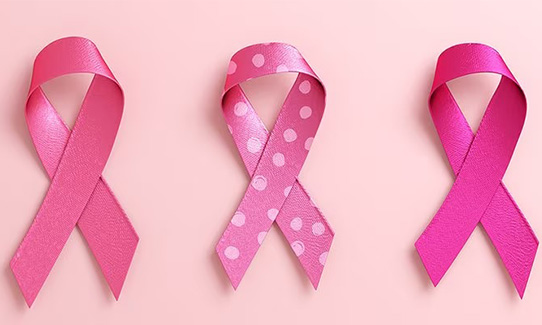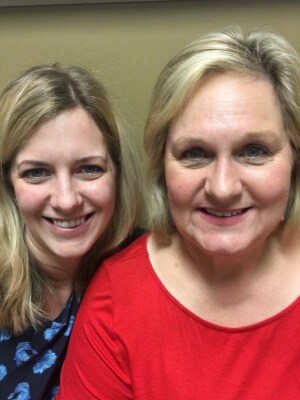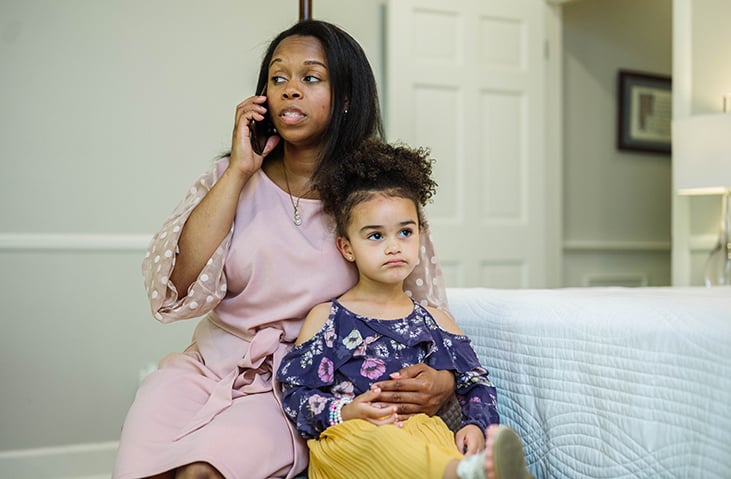

Nov 12 2023
Knowledge is Power


Summary
For Dr. Jessica Lilley of Tupelo, genetic counseling was empowering in her fight against breast cancer.
 Dr. Jessica Lilley never utters an unkind word about anyone – but breast cancer, that’s a different story. “It’s brutal,” she says. “I hate it.”
Dr. Jessica Lilley never utters an unkind word about anyone – but breast cancer, that’s a different story. “It’s brutal,” she says. “I hate it.”
Jessica lost her mother, 60-year-old Joan Sparks of Belmont, to breast cancer on Sept. 22 after a long, hard fight. At age 55, Joan was diagnosed with triple-negative breast cancer, a type that has none of the receptors that are commonly found in breast cancer. “My maternal grandmother died of breast cancer in 1984 when she was in her mid-60s, so Mama always stayed on top of her mammograms once she turned 40,” says Jessica, a pediatric endocrinologist who lives in Tupelo with her husband, Smith, and three daughters.
The year Joan turned 55, she learned that she had stage 2 breast cancer on her screening mammogram. “She had never been offered genetic testing or frequent screening because my grandmother had a significant risk factor that contributed to her cancer, and no other relatives had breast cancer,” recalls Jessica.
Joan enrolled in a clinical trial, underwent surgery, and had chemotherapy and radiation. A subsequent PET scan showed Joan’s cancer was gone, and she faithfully performed breast self-exams and followed up with her doctors every six months. “Everything was okay,” Jessica says, “until it wasn’t.” At age 59, Joan’s cancer returned—this time in her chest wall.
“We went everywhere and tried everything,” says Jessica, who is even more resolute in the fight against breast cancer since losing her mother. “I am determined to take some kind of control from this horrible monster, and I want to protect myself and everyone I love from walking this road again.”
After her mother’s initial diagnosis in 2016, Jessica went for genetic counseling in Birmingham. Factoring in Jessica’s family history and her own health history drove her Tyrer-Cuzick score relatively high. The Tyrer-Cuzick score helps doctors estimate a person’s risk of developing breast cancer and helps shape recommendations about screening. “They recommended I begin having mammograms once I turn 40 and have them every six months thereafter,” she says. “But when Mama was diagnosed a second time, I decided I wanted to be more aggressive.”
In December 2020, Jessica went for genetic counseling with nurse practitioner Angie Taylor at North Mississippi Medical Center’s Cancer Care. This time, because of her mother’s cancer recurrence and other factors, Jessica’s calculated risk was even higher. “My risk according to the Tyrer-Cuzick score and the genetic blood tests were within a percentage point of each other,” she says. “This affirmed that I had a high lifetime risk of breast cancer.”
Jessica says immediately she wanted to march into the office of general and breast surgeon Dr. Danny Sanders’ office and have both breasts removed. Instead, she made an appointment to discuss her options with Dr. Sanders. “I had my first mammogram in 2021 at age 38, followed six months later by a breast MRI because it’s a more sensitive study. Thankfully, neither showed any cancer,” she says. “I continued imaging –alternating mammogram and breast MRI—every six months until 2023 when I was 40, then I had both breasts removed."
Radiologist Dr. Joanna Sadowska at the NMMC Breast Care Center has been an additional source of support and education for Jessica.
Jessica strongly urges women to consider genetic counseling, which can predict whether a patient will get certain types of cancer. NMMC Cancer Care offers a genetic services consultant for:
- Patients who have been diagnosed with a genetically-linked cancer (especially breast or colon cancer) because results of the testing may help doctors and patients decide what type of treatment to provide.
- Family members of breast or colon cancer patients when there is a strong trend of genetically-linked cancers in the family, because more aggressive screening and prevention options may be recommended for family members found to be at an increased risk for cancer.
A referral is required for genetic counseling. If the initial assessment determines the patient is a candidate for testing, a simple blood or saliva test will be performed. For more information, talk to your primary care provider about referral to NMMC Cancer Care for genetic services.
“Even if you have had genetic counseling in the past, it’s worth revisiting now. There was so much more they could offer me in 2020 than they could even four years prior when I went the first time,” she says. “It’s readily available, it’s inexpensive and it’s usually covered by insurance.”
Doing so has empowered her, she says: “Some people say if I was at high risk for cancer, I wouldn’t want to know. But having this knowledge has been powerful. Now I can advocate my very best for myself, my sister, my daughters—and that’s what Mama wanted for us.”
Schedule a mammogram online or call Centralized Scheduling at (662) 377-6655 or 1-866-912-1486.

Subscribe to Our Newsletter
Like this content and want to get more? Sign up for True North, the health and wellness newsletter from North Mississippi Health Services!

Subscribe to Our Newsletter
Like this content and want to get more? Sign up for True North, the health and wellness newsletter from North Mississippi Health Services!

Nurse Link®
Not sure if you need Urgent Care or the ER? Call 1-800-882-6274 anytime to speak directly to a registered nurse and get immediate answers. Using computerized medical protocols, nurses direct callers to the most appropriate treatment. Our nurses are available 24 hours per day, seven days per week.